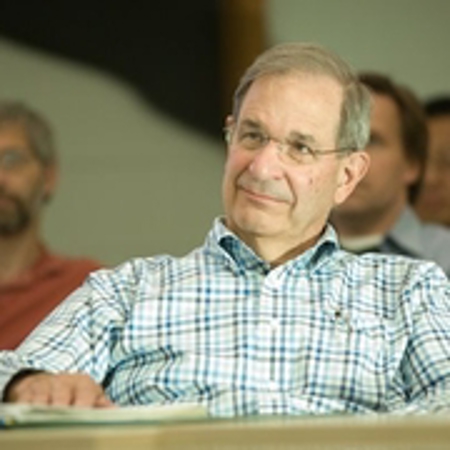James Tiedje
University Distinguished Professor Emeritus, Department of Microbiology, Genetics, & Immunology
Email: tiedjej@msu.edu
Bio
B.S., 1964, Iowa State University M.S., 1966, Cornell University Ph.D., 1968, Cornell University Research The research theme of my laboratory is to understand the ecology, physiology and biochemistry of microbial processes important in nature and of value to industry. While it is common to study a microbe in laboratory culture, understanding its competitiveness, vegetation and community interactions usually determines its success in its habitat whether that be soil, lakes, or a bioprocessing reactor. This theme is studied under the three research topics described below. One area of our research is to discover, understand and to develop to practice new bioconversion reactions by anaerobes, especially for destruction of hazardous wastes. A particularly important reaction that we discovered in 1982 and continue to study is the dechlorination of aromatic compounds by anaerobes. We have anaerobic communities that destroy chlorinated benzoates, phenols, benzenes and some pesticides. Recently we have discovered that at least some of the PCB's can be dechlorinated; this is particularly important since PCB's are one of the top two pollutant chemicals in the world. In the dechlorination reaction we have studied in most detail, we have found that it is carried out by a previously unknown, unusual anaerobe that grows best in a consortium with other organisms; together they create a food chain yielding methane and chloride. Since these reductive dechlorination reactions are among the very few ways that the problem chlorinated hydrocarbons can be destroyed, there is considerable interest in developing understanding and schemes to put this process into practice. A second area of research is on the ecology, physiology and biochemistry denitrification. Denitrification converts NO3 to N2 and thus is a major route of loss of the nutrient most limiting to plant growth; a costly reaction to agriculture and forestry. It can also be a beneficial reaction for removing excess nitrogen from wastes and in anaerobic bioprocessing reactors since denitrifiers grow better than other anaerobes. Our research is aimed at understanding how the NN is formed at the mechanistic level, which is done in collaboration with Dr. Bruce Averill, a chemist. We are also cloning the nitrite reductase genes to understand their diversity, regulation and role in competitiveness, and studying how denitrification is regulated in nature with the long-term goal of better managing their process. Research on this topic ranges from studies in the field and soil cores to enzymology and molecular biology. Our third and new area of research is on studying the fate and impact of genetically engineered microbes so that their success or risk in nature can be better predicted. In collaboration with Barry Chelm, we have developed DNA probe techniques for use in soil to detect specific gene sequences in the total soil population. This allows us to study gene exchange, rearrangement, and regulation as it naturally occurs. We expect to find surprises about how genetics actually works in nature since it is so different from the rich, non competitive conditions of the laboratory. The use of molecular methods in microbial ecology provides a whole new set of tools to study the behavior of important microorganisms in nature.
